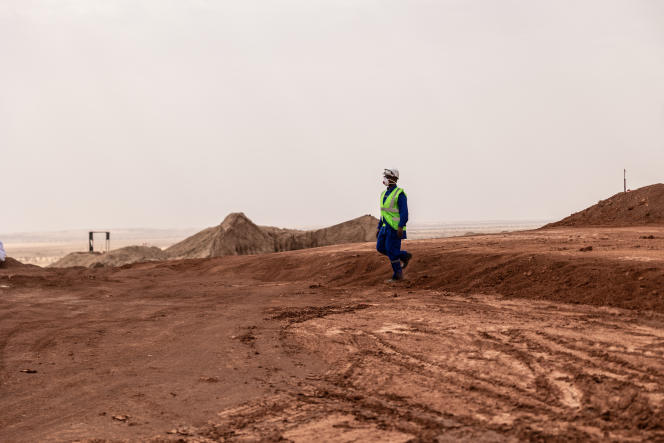Niger is a major supplier of uranium for French nuclear power plants, making General Abdourahamane Tchiani’s coup d’état more than a military matter for the European nation.
On Niger’s Independence Day, 3 August, demonstrators are again out on Niamey streets waving anti-French slogans.
French President Emmanuel Macron has said he will not tolerate any attack on his country or its interests.
‘Anyone attacking French nationals, the army, diplomats or companies will see France retaliate immediately and intractably,’ the Elysée Palace said in a statement on 30 July, following the first outbreak of protests after General Abdourahame Tchiani seized power in Niger.
In addition to the 1,500 French troops and 500 to 600 French nationals on the ground, Niamey represents a strategic economic challenge for Paris.
Through Orano, the multinational company 45%-owned by the French state, the country imports natural uranium from the Niger Desert, which is essential for the operation of France’s nuclear power plants.
Diversification of supply sources
Nuclear power is France’s leading source of electricity production and consumption, with a fleet of 56 reactors spread across the country, and is managed by the EDF Group.
Although the French energy company refuses to provide figures for its supply portfolio, it replied to a request for information by saying it is ‘not dependent on any site, any company, or any country’.
The group imports 7,000 tonnes of uranium annually, equivalent to almost 10% of global demand. Uranium imports from Niger cover between 10% and 15% of France’s needs.
“In the interest of the security of supply for nuclear power plants, EDF is maximising the diversification of its geographical sources and suppliers,” according to a management spokesperson.
Increased vigilance
While fears were raised following the coup against President Mohamed Bazoum, French nuclear power plants appear to be immune from the repercussions of the security situation in Niger.
Orano (formerly Areva), the company responsible for exploiting uranium in the Niger desert, has said it will continue operating from its headquarters in Niamey and operational sites at Arlit and Akokan.
Present in the country for 50 years through three companies – Cominak, Somaïr and Imouraren – the multinational company has announced a reorganisation programme.
‘The security of all our employees present in Niger and of our sites continues to be ensured with reinforced vigilance,’ the group said in a statement dated 1 August.


